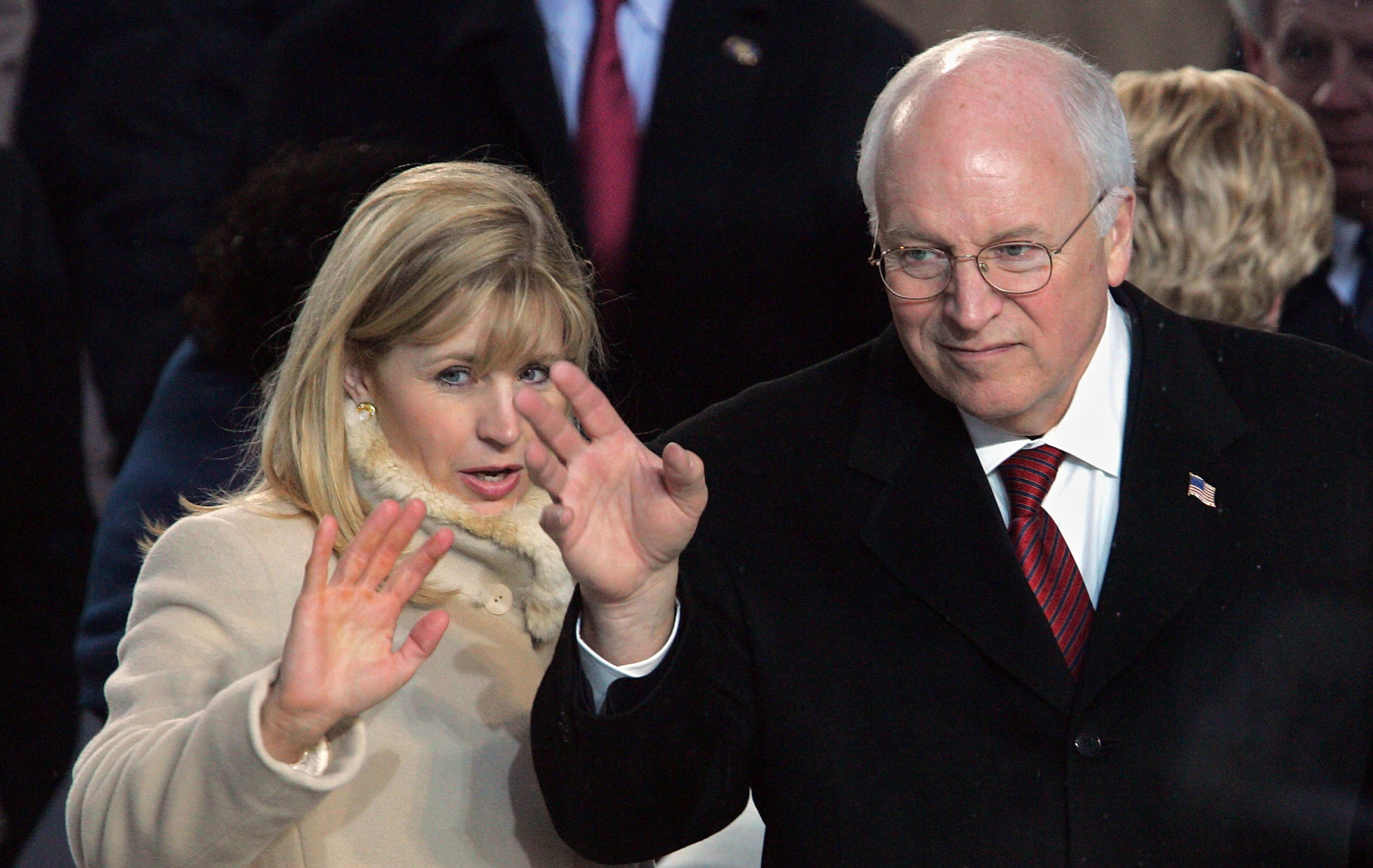Politics
The Democrats’ enthusiastic embrace of yesteryear’s villains underlines the last decade’s party realignment.

Dick Cheney and his daughter Liz stand in front of the White House January 20, 2005 in Washington, DC. (Photo by Jamie Squire/Getty Images)
Last week it was revealed that beloved elder statesman Richard B. “Dick” Cheney will be voting for Kamala Harris come November 5.
The news came during an interview of the former vice president’s daughter, Liz, a former three-term congresswoman from Wyoming—a seat, incidentally, Cheney père held in the 1980s before being tapped for the post of defense secretary under George H. W. Bush.
Like her father, Liz is also abandoning the GOP, for now anyway—she too will be voting for Kamala Harris. Harris campaign chair Jen O’Malley-Dillion quickly issued a statement saying that Vice President Kamala Harris “is proud to have the support of Vice President Cheney, and deeply respects his courage to put country over party…the very future of our republic is at stake in this election.”
In and of itself, the fact that the father-daughter tandem has come out against Trump is not at all surprising, especially given the animosity that has developed between Liz Cheney and Trump over the former’s handling of the January 6 committee.
More interesting was the reaction by Democratic partisans to the news: The liberal hive mind could barely contain its, well, “joy.” Perhaps the most embarrassing reaction to the news came from liberal journalist Joan Walsh who wrote that she found Liz’s endorsement “strangely moving.”
“Liz Cheney has sacrificed more, personally, than I have to advance the truth about Donald Trump, once she got it,” wrote Walsh. Turning to her heroine directly, Walsh continued, “I’ll be trying to track her down on the campaign trail, where she says she’ll be. Liz, I told you we could find common ground. Let’s have a cup of coffee. Or even a beer?”
Aw.
The wild applause that met Liz’s announcement in Texas is indicative of where liberals now place their priorities—and goes a long way toward explaining why they cannot be trusted on matter of national security.
As Chip Gibbons trenchantly observed in 2022,
compared to Dick Cheney’s crimes against democracy, Trump is an amateur. Cheney reduced nations to rubble, shredded the Bill of Rights, and enacted programs of surveillance, abduction, detention, and torture more in line with the state terrorism of military dictatorships than the norms of liberal democracy.
There is a certain sad irony in watching the same liberals who have spent months condemning the alleged dangers posed by the Heritage Foundation’s Project 2025 so lustily applaud Dick’s defection. After all, Cheney and his mentor, the disgraced Secretary of Defense Donald Rumsfeld, are the godfathers of the theory that animates the most controversial aspects of Project 2025, the theory of the unitary executive. Martin Lederman, who served in the office of legal counsel in the Clinton and Bush administrations, notes that as vice president, Cheney
believes that the president and the president’s close advisers should have the final word—indeed the only word—on all matters within the executive branch…it seems to me, a central part of his philosophy and his practice as vice president to try to stamp out or to relegate to the margins any dissenting views, whether it be in the military among the uniformed military and the JAGs; or in the intelligence agencies, when they’re not giving him the stories about Iraq and elsewhere that he wants to hear…He really believes that the president should be the be-all-and-end-all within the executive branch. That’s the unitary executive theory.
Subscribe Today
Get daily emails in your inbox
Clearly, Dick’s almost unsurpassed record of war crimes no longer disturbs the liberal conscience; indeed, in the years since Iraq, the Democratic Party has appropriated much of the neocon agenda as their own.
With just under two months to go until the election, Kamala Harris is riding a wave of support from Wall Street, Silicon Valley, Hollywood, and, as we have seen, members of the old-guard Republican establishment.
As all this unfolds, the Republicans are slowly undergoing a transformation of their own; today the party is more populist, more pro-worker than at any time since Teddy Roosevelt. Meanwhile, liberals like Walsh are busy debasing themselves by making common cause with a family of war criminals.

